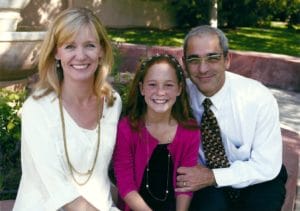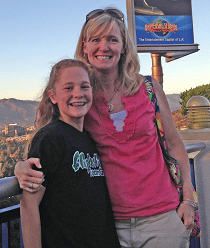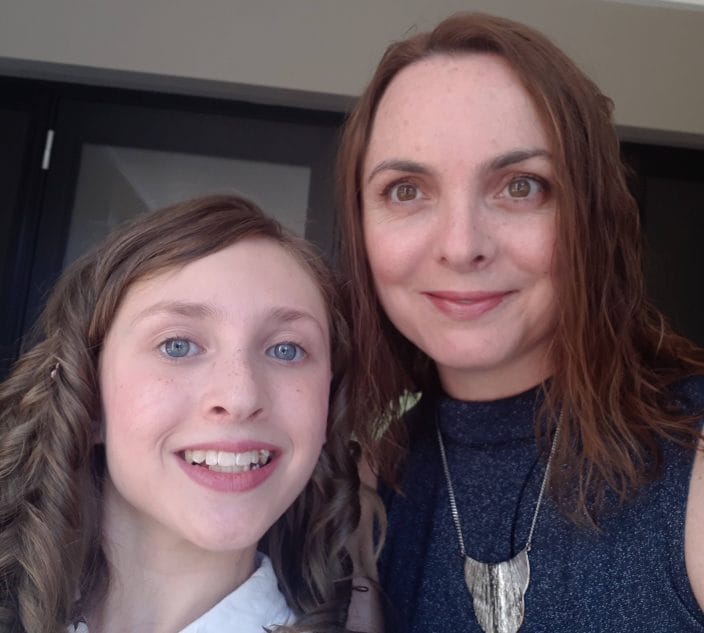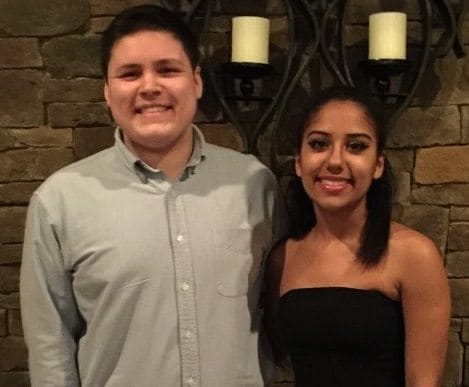The City of Sacramento has reached a settlement of $15 million with Louis and Joanne Giorgi in the lawsuit over the tragic food allergy death of their 13-year-old daughter Natalie. The city also agreed in October 2019 that Camp Sacramento will become accredited with the American Camping Association and implement full food allergy training, accommodation and emergency protocols.
Camp Sacramento is where Natalie suffered a fatal anaphylactic reaction in July 2013 after biting into a peanut-containing snack.
The lawsuit had accused the city and the camp of negligence, particularly in the training of staff who were meant to be serving allergy-safe food to campers with food allergies. In addition, after Natalie’s two epinephrine auto-injectors hadn’t stopped her fast-progressing reaction, the emergency response was slowed when the camp’s staff couldn’t locate the key to a medical cabinet that contained an auto-injector. (Louis Giorgi ultimately broke into the cabinet.)
Positive Change for Natalie
Allergic Living Editor Gwen Smith speaks to Joanne and Louis Giorgi about everything from the lawsuit settlement, to their foundation’s aims, and their heartfelt desire to make Natalie’s name synonymous with positive change in food allergy research and education.
GS: Thank you so much for sitting down with Allergic Living. To start off, perhaps you could speak about the lawsuit’s resolution. Why did you settle and what do you hope will come out of the settlement?
Louis Giorgi: We never really thought about it [a lawsuit] in the beginning. But when it became something that we considered, we thought it would be very consistent with the idea of raising awareness and making sure that we could get people to pay more attention to the issue [of anaphylaxis]. And I think we were able to accomplish that.
The City of Sacramento has made their statement and it is quite strong – they are going to make changes and those changes are going to protect future campers. Therefore, hopefully, there will never be another story like Natalie’s with those changes.
GS: What were the more important camp precautions that Sacramento has agreed to make?
Joanne Giorgi: Our understanding is that food safety training will have to go on. To us, the biggest piece is that people will receive training in food safety, and making sure, as the old saying goes, that every ‘i’ is dotted and every ‘t’ is crossed. There are checks and balances, and knowing that there are standards in terms of what they’re accounting for, what staff has been trained – all of those things are clearly important to us, and we thought would be important to other people with food allergies.
In the event of a case like Natalie’s, my understanding is that they will also have more procedures in place to help expedite emergency care.
LG: The American Camping Association has the criteria on their website of what they cover, and it covers everything from health forms and medication to medical facilities and requirements. It talks about the food safety aspect, transportation and emergency services – which will go beyond food allergies – but it encompasses keeping everybody safer. That was important for us.
GS: Louis, I was struck by what you said recently to the media. Your message to those in food services was: ‘Be aware of what you’re serving and who you’re serving it to.’ Can you elaborate on that?
LG: One of the journalists said, ‘Are you anti-peanut?’ And I said, ‘No, we’re not anti-peanut, we’re for awareness.’ There’s nothing wrong specifically with people eating peanuts or milk or whatever it is. But it is a simple thing to know – if that food were labeled, Natalie wouldn’t have eaten it. And we wouldn’t be talking.
That’s really what the point is. Who is your audience and what are you serving, and it doesn’t require any huge additional costs or special equipment. It’s simply a matter of knowing what you’re serving and who you’re serving it to.
GS: That’s also a good message because sometimes people who serve food might become fearful of allergies and think, ‘we just can’t serve these people.’ Have you run into that attitude?
JG: We have not. If anything, I think many restaurants have become better about with working with our needs. If we do eat out, there are many times that I feel much more confident than I did years ago that they understand, that there’s clearly somebody in the kitchen who gets what I’m talking about and is willing to work with us.
Natalie’s Tragedy Touched a Nerve
GS: You had already set up the Natalie Giorgi Sunshine Foundation. Will you be putting some of the settlement toward food allergy research or awareness through the foundation?
JG: The simple answer is yes, although we haven’t even wrapped our heads around that. We will use that [funds from the settlement] to continue to hopefully make an impact – and that would be felt in a big way by both research, clearly, and continued education. We haven’t formulated how it all breaks down. I think that in turn will make us feel good, so we can continue to do good in the [allergy] community.
LG: While we haven’t had a chance to formulate a plan at this point. But we’re in the mindset that we would work with one of the universities and bring [the story of] Natalie to start the fundraiser, to create an event, and then hopefully raise more money. We really do hope to be able to leverage Natalie in that way, and make a much bigger difference now.
[Editor’s note: Joanne and Louis explain that, before the settlement, Natalie’s foundation had already made a significant donation to research at Stanford University’s Sean Parker Center for Allergy & Asthma Research, plus contributed funds toward FARE Teen Summit and for FARE’s development of preschool allergy materials.]
JG: Going forward it’s finding ways, like Louis said, to leverage and get involved – helping people within the community. And hopefully, making an impact in the research.
GS: Natalie’s passing touched a nerve in the food allergy community. What have people told you about why they were so affected?
JG: The people who seem to be most affected are the ones we still hear from, the people who are just frightened it will happen to their child. And clearly that’s all of our fears when you’re living with a child with food allergies. [Natalie’s siblings also have allergies.]
We still hear from people primarily for one of two things. One is the people who are still struggling to get those around them to take their child’s food allergies seriously, and then we also hear the stories from families who have shared Natalie’s story and effected change [such as at school or a camp]. And we’ve also had people tell us they never carried EpiPens – and now they carry them.
LG: We’ve had people even say that their doctors never seemed to pay that much attention and they kind of changed their management in terms of being on top of having the auto-injectors, and coming up with an [anaphylaxis] action plan. They never had one before until after Natalie.
Impact on Anaphylaxis Action Plans
JG: Those are the little stories that people will reach out and let us know. I had one mom send me a very nice story that she felt Natalie’s presence in a room when she and her husband were disagreeing about whether to give the epi or not. She said she just gave it because ‘I literally felt your daughter’s presence saying, Give it. Give it.’
Those are amazing stories to hear – that by us sharing Natalie’s story that we can have impacted, or even changed within the community how somebody was doing things. Because our goal is that nobody else suffers the same loss.
GS: You mention the impact on physicians, and even allergists were affected. Most now give the advice to give the epinephrine if it’s suspected that the child has consumed the allergen. We used to be told, ‘wait for symptoms.’ So that’s a big change. Do you view this as part of Natalie’s legacy?
JG: Yes, and we have been told as much by different allergists.
LG: It truly seems to be that the treatment protocol has changed. People have said that it’s remarkable that Natalie never had a reaction before. And you know we were so careful and she was so careful. We did what we were told to do.
See Also: Lessons From a Food Allergy Tragedy
So really the only way to ultimately prevent this is to get the research figured out. Until that point, it’s going to be avoidance and awareness to keep everybody safe, medication as needed and protocols being changed. But if we can change the research and change the disease itself, that would be the ultimate goal.
Heroic Effort & Stock Epi’s Impact
GS: Louis, one thing raised in the settlement was that your arm was quite injured as you were trying to get the camp’s auto-injector out of a locked cabinet, after you’d administered your own injectors to Natalie. Is it correct that this injury means you can no longer work as a urological surgeon?
LG: It is, but it doesn’t seem right to talk about it in the same sentence. We lost Natalie that night – so that’s very, very secondary to us. The message – the meaning – is Natalie and making a difference. My injury doesn’t make a difference to anyone, but Natalie can make a difference. The important part is her story.
GS: Your lawyer Roger Dreyer put it well though, simply referring to your injury as the “cascading effects of Natalie’s loss.”
JG: Most people, except those closest to us, were unaware of the fact that Louis lost the use of his left arm from a surgical perspective. I have said, and I will always say, that he fought valiantly and courageously to try and save Natalie’s life that night. Nothing short of heroic is what he tried to do to save her. Unfortunately in the process, to Roger’s point, there were some other cascading elements that happened.
GS: Joanne, in terms of advocacy, you testified in support of California’s school stock epinephrine law. However, now we’re seeing some school epinephrine laws getting caught up in the EpiPen pricing controversy. Some journalists have begun writing on stock epi laws as a marketing strategy. What would you like those reporters to know about stock epinephrine?
JG: I know of a couple of instances in California where stock epinephrine was used, and helped mitigate a tragedy and possibly save a life. Clearly, there’s something going on with the pharmaceutical company that makes us all raise our eyebrows. That being said, do I still think it’s important that all schools to have epinephrine accessible and designated in our schools? Absolutely!
I still feel strongly about that. Perhaps even more so – because if you know families that are having a hard time paying for one set, they might not have a second set to provide to a school. Then that even becomes more of a lifesaving tool for those kids who are diagnosed.
GS: You have spoken of positive momentum. Do you think the high profile of Natalie’s passing will help to prevent other deaths?
JG: I hope so. I would continue to hope that her story stays out there, so that no family is faced with watching their child die from anaphylaxis. We’ve got some momentum so hopefully some change will happen. We have seen positive steps – like your point that allergists now instruct people differently.
But I think there’s still much, much more education to continue to happen. With anaphylaxis, I can’t stand ever hearing it being made fun of or jokes being made about anybody suffering an allergic reaction. That’s the stuff that makes you go, ‘Wow we really have a lot more work to do.’ I’d love to see that change.
LG: In terms of momentum, if parents are paying more attention because there are so many numbers. If schools are paying attention because their kids are being affected, if Natalie’s picture and story helps to keep those auto-injectors in schools, that will make a difference. The doctors changing their [action] plans, that all makes a difference and adds to the momentum. The camps – maybe this will help change them.
We’ve gotten emails about situations where people get affected every day: their schools, their teams, their families paying attention. Clearly, restaurants are much more aware. All of those things are great momentum. Whatever part Natalie played in that makes us feel just a little bit better.
JG: Always as a stressor for families is flying; that question of what would be safe when we get on an aircraft and what’s their policy. I’m not sure if I’ve ever shared this, but we were on a flight maybe six months after Natalie passed away. When I explained about our kids’ allergies – our kids who are still with us – I had flight attendant take a wallet-size picture of Natalie. Do you know that the captain flew with Natalie’s picture at the front of the cockpit – for the entire flight?
So there are little stories like that, and I think there’s momentum. I do believe that good is mostly out there, that people want to help, and make things safer for everyone. If Natalie’s story helps give this momentum, then that’s why we continue to share her story.
GS: Yet a problem with the airlines is that the allergy policies and their application are still inconsistent.
JG: Right, it is inconsistent. And it shouldn’t take one of us talking about my 13-year-old daughter to have a really safe flight. No one wants to have to do that.
GS: I’d like to thank you both for your support of the community in Natalie’s name. Have you any parting thoughts to share with our readers?
LG: We’ve been very thankful with the outreach we’ve received from the community. We want to continue to work and make it better for the entire community.
JG: The community and their support of us, their genuine caring for Natalie …. It really keeps us going to know that we can hopefully continue to do good things in Natalie’s name. We hope impactful things that can help pave the future for their children.







